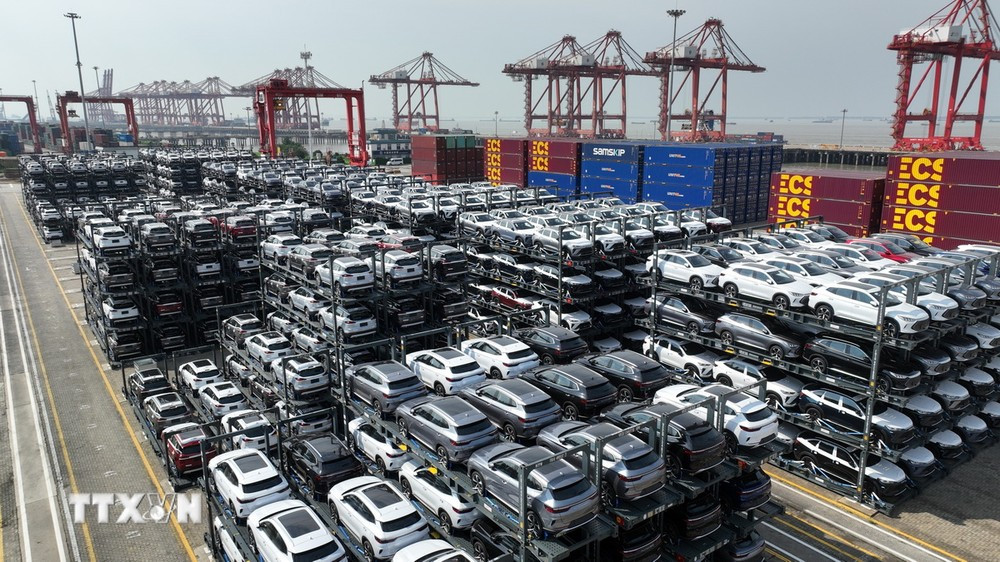In addition to maintaining the tariffs imposed by former President Trump, the US increased some typical taxes such as quadrupling the tax on electric vehicles to more than 100% and doubling the tax on semiconductors to 50%.

According to Reuters, on May 22, the Office of the US Trade Representative said that the sharp increase in tariffs on a series of imported goods from China - including electric car batteries, computer chips and medical products - will take effect from August 1 after the end of a 30-day comment period.
US President Joe Biden will maintain the tariffs imposed by former President Donald Trump, while increasing some other taxes, typically quadrupling the tax on electric vehicles to more than 100% and doubling the tax on semiconductors to 50%.
The White House said the tariff increase would affect up to $18 billion worth of imports from China, including steel and aluminum, semiconductors, electric vehicles, critical minerals, solar panels and cranes.
Specifically, under Section 301 of the Trade Act of 1974, the US increased tariffs from 25% to 100% on electric vehicles, 7.5% to 25% on lithium batteries for electric vehicles, from 25% to 50% on photovoltaic components used to make solar panels, from 0% to 25% on some important minerals. The tariff rate on some steel and aluminum products will be 25%.
Tariffs on gantry cranes will increase from 0% to 25%, on syringes and needles from 0% to 50%, and on certain personal protective equipment (PPE) used in healthcare facilities from 0% to 25%. In 2025, tariffs on semiconductors will double to 50%.
In addition, Mr. Biden kept the tariffs on $300 billion worth of Chinese products imposed by his predecessor, Donald Trump.
According to official Washington figures, the US imported $427 billion worth of goods from China and exported $148 billion to this market in 2023.
US Trade Representative Katherine Tai said the tariff adjustment was justified because China continues to steal US intellectual property and, in some cases, has become “more aggressive” in cyberattacks targeting US technology.
Ms. Katherine Tai said that the previous "Section 301" tariffs had minimal impact on prices and employment across the US economy, but were effective in reducing US imports of Chinese goods while increasing imports from other countries.
However, Ms. Tai recommended exempting tariffs on dozens of types of industrial machinery imported from China, including 19 types for solar energy product manufacturing equipment.
US officials said the “carefully targeted” measures, combined with domestic investment and coordination with close allies, did not risk exacerbating inflation in the country. They also downplayed the risk of retaliation from China.
China has condemned Mr Biden's action plan and pledged to take "resolute measures" to protect its interests.
China believes that these tariff increases are counterproductive and harmful to both the US and global economies.
TN (according to Vietnam+)